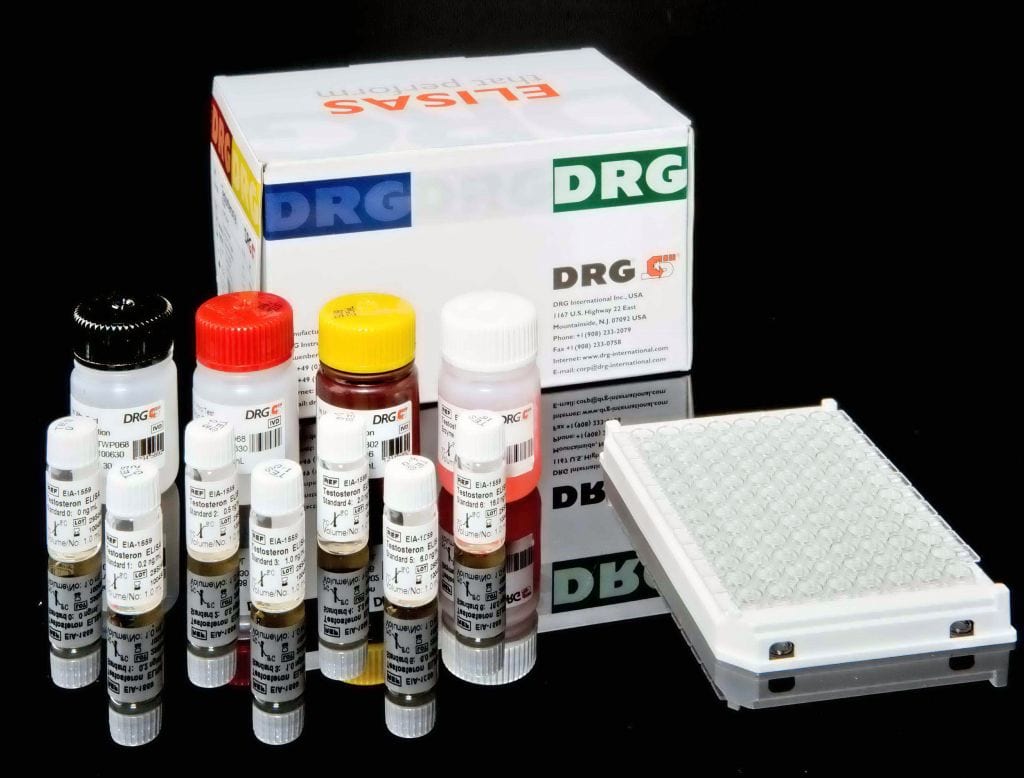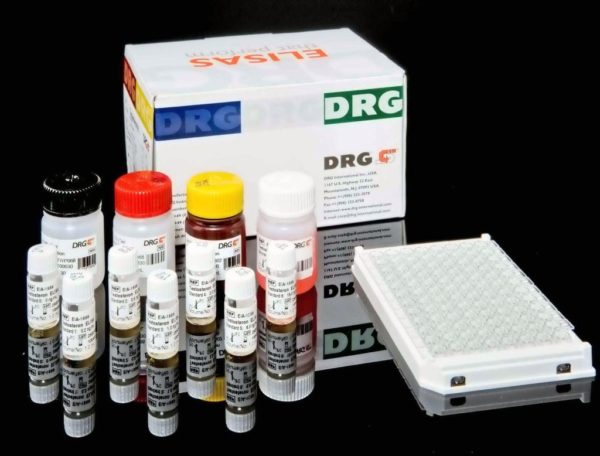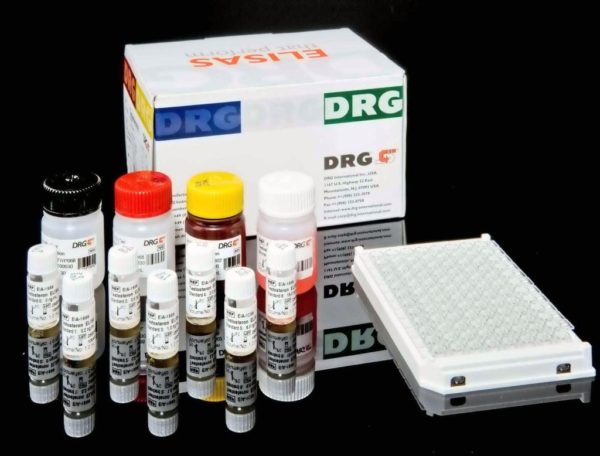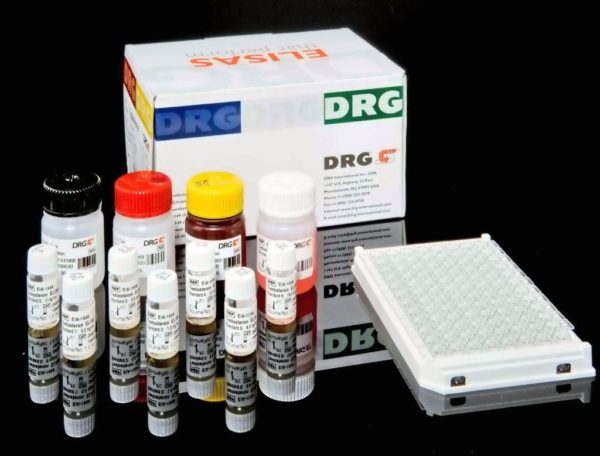Description
Enzyme immunoassay for the in-vitro diagnostic quantitative determination of Serotonin in human serum, plasma, platelets and
urine. Further the test can be used for research of tissue homogenates and cell culture supernatants.
Serotonin is an intermediate product of tryptophan metabolism and is located primarily in the enterochromaffin cells of intestine, serotonergic neurons of the brain, platelets of the blood and is well established as a neurotransmitter in the central nervous system.Nearly all of the serotonin in circulating blood is concentrated in platelets. Altered concentrations of circulating serotonin have been implicated in several pathological conditions including chronic tension
headache, schizophrenia, hypertension, Huntington«s disease, Duchenne«s muscular dystrophy and early acute appendicitis. The determination of serum
serotonin levels is of high clinical significance for diagnostic assessment of carcinoid syndrome. An increasing interest in the determination of serotonin in
platelets including uptake and release kinetics is expected in the near future.
The sample preparation (derivatization of serotonin to N-acylserotonin) is part of the sample dilution and is achieved by incubation of the respective sample with the Acylation Reagent. The assay procedure follows the basic principle of competitive ELISA whereby there is competition between a biotinylated and a
non-biotinylated antigen for a fixed number of antibody binding sites. The amount of biotinylated antigen bound to the antibody is inversely proportional
to the analyte concentration of the sample. When the system is in equilibrium, the free biotinylated antigen is removed by a washing step and the antibody
bound biotinylated antigen is determined by use of streptavidine alkaline phosphatase as marker and p_nitrophenyl phosphate as substrate. Quantification
of unknowns is achieved by comparing the enzymatic activity of unknowns with a response curve prepared by using known standards.




